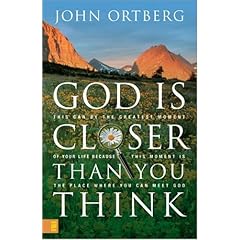Sometimes I think the purpose of many church and para-church men's ministries is to give some men an opportunity to minister to men. Then the ministry is measured by the number of men "receiving" ministry - showing up at the breakfasts, or attending the classes. Please understand that I know many churches that do not take this specific approach. If you're fortunate enough to be in one of those churches, that's great. Many other churches however are dissatisfied at the lack of involvement, passion and growth of the men in their congregation. They're always trying to get more men "involved" or "growing" or "participating." Is that a problem your church faces? If so, this is one possible solution.
Since when did men need to be ministered to as a rule? I realize we all appreciate some help when we need it, but Proverbs 27:17 says that "Iron sharpens iron, so one man sharpens another." In my mind, that means at least half of us are ministering to someone, now and the other half will be soon. Robert Lewis, in Men's Fraternity, calls us "action figures." We're to be initiators, as Larry Crab said in The Silence Of Adam, not passive, but active, stepping into chaos, and bringing order. In Wide Awake, Erwin McManus suggested that when we're passive; when we're unconnected with the world around us; when we're not ministering, we fail to honor our call. We shortchange the world because we fail to fulfill the work God prepared for us to do (Ephesians 2:10). We are made for a purpose; to make a difference within our sphere of influence. As John Ortberg stated in God Is Closer Than You Think, we're made to bring "up there down here." Sure we could use some help. We're not supposed to go it alone. But if the purpose of the men's ministry is to try to grow us through involvement and attendance, we'll come up short.
We're not to be full-time students. We are not to experience a relationship with Christ from a classroom, or vicariously through our church staff and men's ministry leaders? No one ever made a difference sitting in a church service always being a hearer. We are called to not only be hearers, but also effectual doers. We need to stop being taught and begin to actively learn. We need to learn on purpose and for a purpose. The ministry we need must make us ministers.
So, how can you become a minister? Maybe you're one now. If so, great. Pray for the rest of us. As for the rest of us, if you hear a still, small voice in you telling you it's time to get up and get going, do it! Listen to God. Ask God today to make you a minister. Ask Him to show you where and how to make the world a better place, one person at a time. Then, whatever you think he's telling you to do, DO IT! Will you mess up, probably. But you're messing up not doing anything anyway. Ask God to direct you, pray for the people around you and watch what God does. He's almighty. He'll direct you if you're sincere in your desire to follow Him. Ask a couple of men to keep an eye on you so you don't get too far off base, but go for it. Before you know it, you'll be in real men's ministry.





